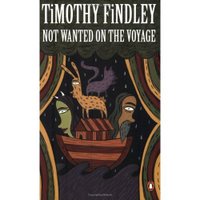
"So, your sister likes to read?" my little sister's boyfriend's mom asked her.
"Yes. A lot."
"What does she read?
Mysteries?"
"Um...not really."
(Katie and I snickered about this little bit of conversation later. And in honour of this little bit of conversation, I decided to read a mystery.)
The latest book to move off my "To Read" list is
DreadfulWater Shows Up by Thomas King, writing as Hartley GoodWeather. I didn't know that T.K. wrote under a pseudonym, and actually, the copy of the book that I have has THOMAS KING in giant letters across the top, so I guess his publicists decided the pseudonym wasn't working? (Is King that much of a name brand?)
Anyways, it took me a long time to get into this book. I read bits while waiting at bus stops, etc. but continually shoved the book back in my bag with no real desire to continue. Today--a sick day, without a TV--I decided to truck through it, and I actually kinda sorta got into it.
I'm not a fan of mysteries, so this book isn't exactly my style. And well, I'm not really sure that the mystery novel is King's key genre. But I still like his sense of humour that pervades all of his writings, and I love the way he peppers even a mystery with social commentary.
The basics: Thumps DreadfulWater is a retired cop-turned-photographer, who gets himself involved with investigating a murder case at the new casino/condo development on Native land in the U.S. Originally, he shows up at the scene to take pictures of the body, but when he finds out that his girlfriend's son, Stanley, is the prime suspect--and when his gut instinct tells him that Stanley's being framed--he starts back on the detective beat again.
After finishing the book tonight, and while washing dishes, I flipped on the CBC and was entertained by T.K. once more. I had forgotten about King's return to radio:
"Dead Dog in the City" is pretty decent!









